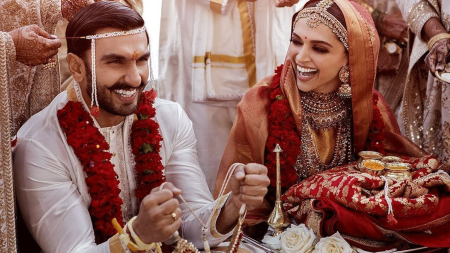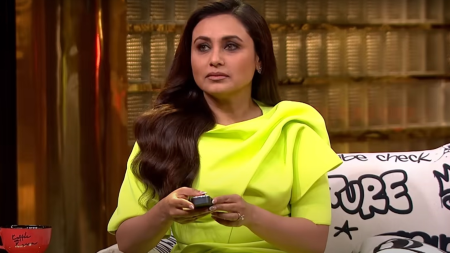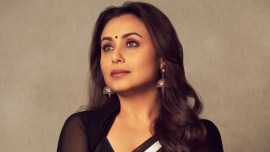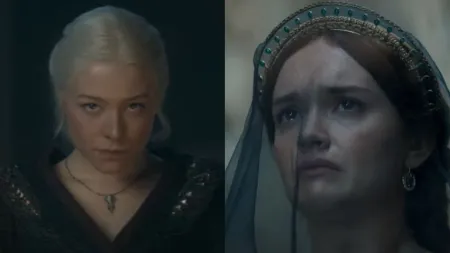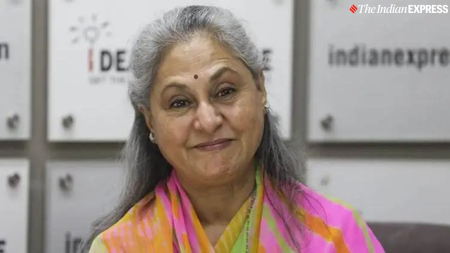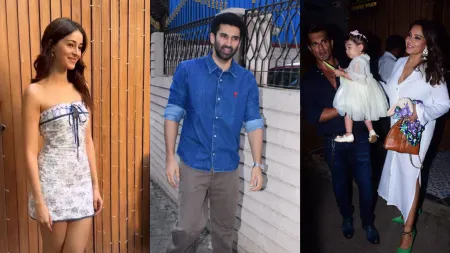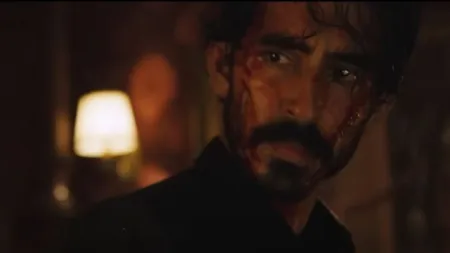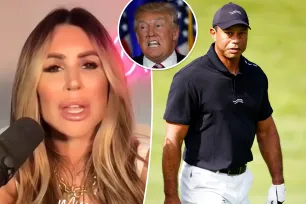This biographical film on the life and times of Vinayak Damodar Savarkar, the fiery ideologue and orator who propagated the idea of Hindutva, is exactly what it promises to be: an account solely from the point of view of a complex, endlessly fascinating figure whose growing fanaticism was masked by a piercing intelligence and an absolute conviction of his sense of the world — that he was right, and that those who did not agree with him, which included Mahatma Gandhi, were wrong.
It’s no surprise that Randeep Hooda, who has proved over and over again his accomplishments as an actor, brings an absolute conviction to his titular role. Stands to reason, as he has co-written and co-produced the film. What does come as a surprise are his directorial abilities, in which he uses stylised staging and an understanding of how to create drama throughout this three-hour long film, propelled by not just his propulsive performance, but by his voice-over, as both blaring show and tell.

What we get is a detailed biographical sketch of Savarkar, the arc being drawn from his childhood where we see his deep, abiding affection for his older brother (Amit Sial), being a collegiate who was already different from his peers, his marriage to the lovely, loyal Yamuna (Ankita Lokhande), his warm reception at London’s India House and becoming familiar with revolutionary movements underway in Italy and Russia, his arrest and deportation to India with a failed dash for freedom (leaping from the window of the ship into the ocean), his years at Kala Paani Jail where he was tortured ceaselessly, and his sporadic bursts of release, all through which he kept growing in stature amongst those aligned with his thinking.
You could argue that Hooda’s intention was to right what he considers are historical wrongs towards his hero, and there’s not an iota of doubt of the near-worshipful tone the film bears towards the central character. But the film is diminished by its constant belittling of his contemporaries, especially of Gandhi, who is made to come across as weak, ineffectual, and the man responsible for the Partition. Nehru, also a pet peeve of those who espouse a certain idea of India, is seen wreathed in cigarette smoke, and smiling at an Englishwoman: that last is not a scene, but a smirk.
‘Gandhi itna badaa kab se ho gaya?’ This line with its barely-veiled contempt may elicit laughter in the theatre — yes, this is the age we live in — but these are cheap shots. And they diminish this portrait of Savarkar, who in his own estimation as well as in the many others who believed in the idea of Akhand Bharat, was convinced that armed revolution was the only way to get rid of the British. The film opens with a declaration that we have been told that non-violence gave us our freedom, but that this is not that film, so we are ready for an alternate point of view.
But this is much more. It is an alternate universe, in which Savarkar’s numerous mercy petitions to the British, when he was incarcerated in the notorious Andaman prison, are somehow turned into instruments of reason. And that his espousal of Hindutva, his leadership of the Hindu Mahasabha and call for a Hindu Rashtra, was not as exclusionary as Gandhi’s embrace of all humanity there’s both a dissembling confusion, as well as outright obfuscation, in these parts of the film.
ALSO READ | Randeep Hooda controversy: Savarkar’s many afterlives and why it’s important to lay him to rest
If there was more balance in these portrayals (Savarkar is shown dissing Nathuram Godse in a throwaway sentence after the Mahatma’s assassination, saying ‘usse woh nahin karna chahiye thaa’, before going right back to his position) it would have enriched the film all-round. It is also an account of the making of a nation, and the figures involved in the freedom struggle: the array of young rebels being sent to the gallows, the noose and their faces, framed against a black screen, which include Madanlal Dhingra and Chandrashekar Azad, is an effective device. Hooda’s playing of Savarkar, the physical transformation in prison with his ribs showing and teeth rotting, and achieving an astonishing likeness of his subject, is admirable. But its one-sidedness makes it stridently one-sided, and, ultimately, reductive.
Swantantrya Veer Savarkar movie cast: Randeep Hooda, Ankita Lokhande, Amit Sial, Russell Geoffrey Banks, Rajesh Khera, Brijesh Mittal, Lokesh Jha, Mark Bennington ‘
Swantantrya Veer Savarkar movie director: Randeep Hooda
Swantantrya Veer Savarkar movie rating: 2 stars
Disclaimer: The copyright of this article belongs to the original author. Reposting this article is solely for the purpose of information dissemination and does not constitute any investment advice. If there is any infringement, please contact us immediately. We will make corrections or deletions as necessary. Thank you.
